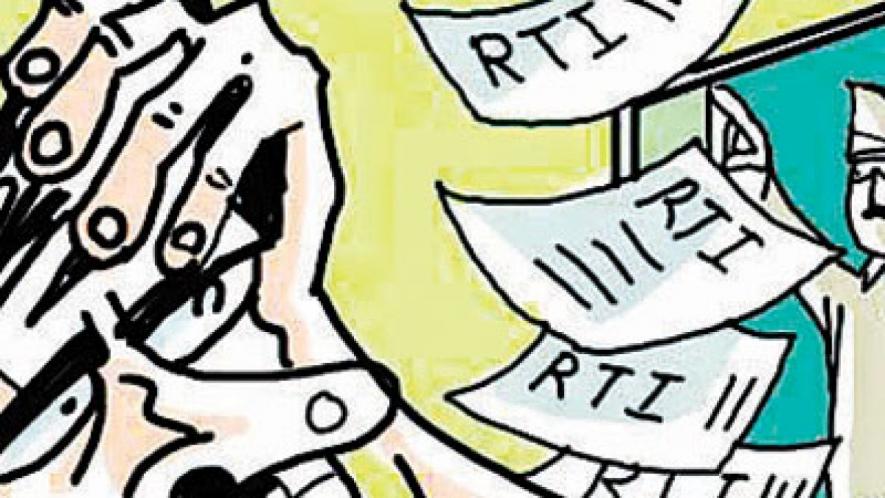Information Commissions Under RTI Act Are In A Mess, Says Report

Image Courtesy: DNA India
The information commissions (ICs) set up under the Right to Information (RTI) Act 2005 are critical to citizens exercising the hard-won Right to Information, which can hold the government and public offices accountable.
But a new report on the performance of the ICs, carried out by the Satark Nagrik Sangathan (SNS) and the Centre for Equity Studies (CES), has found that the commissions have not been doing their job properly. The report flags an alarming pendency of appeals and complaints as well as shockingly long waiting periods for disposal.
The ICs were set up at the central level (Central Information Commission) as well as the state-level (state information commissions) are vested with wide-ranging powers. These powers include requiring public authorities to provide access to information, appointing Public Information Officers (PIOs), publishing certain categories of information and making changes to practices of information maintenance. The commissions also have the power to order an inquiry if needed, the power to require the public authority to compensate the complainant for any loss or other detriment suffered, as well as to impose penalties on erring officials.
As the report says, estimates suggest that every year 40 to 60 lakh RTI applications are filed in India.
The assessment by SNS and CES analysed the performance of 29 ICs across India (including the central information commission and excluding Jammu & Kashmir, as the national RTI law is not applicable in the state).
A total of 2,76,405 appeals and complaints were registered while 2,14,809 were disposed by the 23 ICs that provided the information between 1 January 2016 and 31 October 2017.
Uttar Pradesh registered the highest number of appeals and complaints (83,054) followed by the CIC (47,756) and Karnataka (32,403). Mizoram and Meghalaya registered the lowest number of appeals and complaints, 21 and 63, respectively.
In terms of disposal, the CIC disposed the highest number of appeals and complaints (54,219), followed by UP (42,911) and Karnataka (28,648).
The information commissions of Andhra Pradesh, Bihar, Madhya Pradesh, Maharashtra, Rajasthan and Tamil Nadu did not provide the information regarding the number of appeals and complaints dealt with by the ICs. The information was also not available on the websites of these state ICs.
As for the pending cases, the study found that 1,81,852 appeals and complaints were pending on 31 December 2016 in the 23 ICs, and the pendency only increased to 1,99,186 at the end of October 2017.
The state with the highest number of pending appeals/complaints was Uttar Pradesh (41,561), followed by Maharashtra (41,178) and Karnataka (32,992), as of 31 October 2017. The ICs in Mizoram and Sikkim were the only ones with no backlogs as of 31 October 2017.
The massive backlogs in the disposal of appeals and complaints by the ICs is one of the gravest issues plaguing the commissions.
“The high levels of pendency are often a result of non-appointment of commissioners in the IC and/or the tardy functioning of existing commissioners,” the report says.
Indeed, the assessment found that the posts of commissioners, including that of the chief information commissioner, were lying vacant in several state ICs. As a result, the commissions in many states were non-functional or were functioning at reduced capacity (including Andhra Pradesh, Telangana, West Bengal, Maharashtra, Gujarat, Kerala and Odisha).
Under the RTI Act, ICs consist of a chief information commissioner and up to 10 information commissioners, appointed by the President of India at the central level and by the governor in the states. Various high court judgments have held that each IC must consist of at least the chief and one other information commissioner.
Further, the study computed how much time it would take for an appeal or complaint filed on 1 November 2017 to be disposed by the state ICs (assuming appeals and complaints were disposed in a chronological order). It estimated that disposal would take 43 years in West Bengal, while the waiting periods in Kerala was six years and six months, and more than five years in Odisha.
The report also found that the performance of many ICs in terms of publishing annual reports and putting them in the public domain was disappointing. Eighteen out of 29 ICs (62%) had not published their annual report for 2016 on their website. The Punjab IC had not published its annual report after 2012 while Jharkhand, Telangana and Andhra Pradesh had not published annual reports after 2013. While Uttar Pradesh IC stated in response to an RTI application that the annual report for 2016-17 had been published, it was not available on its website.
What’s more, the RTI Act empowers the ICs to impose penalties of up to Rs. 25,000 on erring PIOs for violations of provisions the RTI Act. However, the study found that the state ICs had imposed penalty in “only an extremely small fraction of the cases in which penalty was imposable”.
Between 1 January 2016 and 31 October 2017, 22 of the commissions that provided the relevant information had imposed penalty amounting to Rs. 4.41 crore in 4,194 cases (appeals and complaints). But the quantum of penalties recovered for the same period was only Rs 49.73 lakh.
The highest quantum of penalty was imposed by Karnataka (Rs. 1.69 crore), followed by Haryana (Rs. 95.97 lakh), and Uttarakhand (Rs. 72 lakh). The CIC imposed penalty amounting to Rs. 29.36
lakh in the given time frame. The ICs of West Bengal and Mizoram did not impose any penalty during this period.
Get the latest reports & analysis with people's perspective on Protests, movements & deep analytical videos, discussions of the current affairs in your Telegram app. Subscribe to NewsClick's Telegram channel & get Real-Time updates on stories, as they get published on our website.























